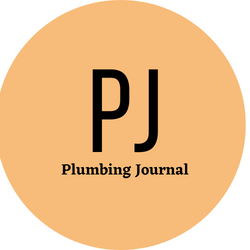How Often Should Drains Be Cleared?
by siteadmin

A drain clog can cause a lot of inconvenience in your home. Food scraps, hair, soap scum, grease, toilet paper and other things that make their way down the drain may build up over time.
To avoid a clog, mix equal parts of baking soda and salt and pour it down your drain. Leave it to sit for 30 minutes and then rinse with hot water.
Monthly
Drains handle a lot of water and debris each day, such as soap scum, food particles, hair, and grease. If they’re not regularly cleaned and cared for, they can start to clog and slow down over time. If left unchecked, these clogs can lead to overflowing sinks and bathtubs, and even major plumbing issues like broken pipes or flooding.
To avoid costly repairs, the best way to keep your drains in good condition is to follow a schedule of regular cleaning and maintenance. There are many ways to do this, from using chemical drain cleaners to natural methods such as baking soda and vinegar. Whatever method you choose, a monthly routine will help ensure that your drains remain clean and functional for months, years, or even decades.
How often your drains need to be cleaned will depend on the number of people living in your home, how busy your household is, and the types of things you put down the drains. Kitchen drains, for example, are prone to clogs from food scraps and oil, while bathroom drains can be clogged by hair and soap residue. For this reason, it’s a good idea to have your kitchen and bathroom drains professionally cleaned every 6 to 12 months.
You can also take steps to prevent drains from getting clogged in the first place, such as by installing a strainer in your sink or adding a lint trap to your dryer. You should also make sure to never dump fat or oil down any drain, and always run cold water when you use the garbage disposal.
Some homeowners may opt to use chemical drain cleaners, but these can be damaging to your pipes and environment. A better option is to flush your drains with boiling hot water each month. This can be done by pouring a cup of vinegar down the drain and then flushing it with hot water. For a stronger cleaning solution, you can combine the vinegar with baking soda and let it sit for 30 minutes before pouring down the drain.
A professional plumber from Philadelphia Drain Cleaners can also use a mechanical tool called a snake to clear blockages in your drains. This technique can break apart and remove larger obstructions such as clogs caused by tree roots or broken pipe. It’s a good idea to have your drains snaked annually, or more frequently if you live in an area with a lot of trees or experience frequent problems with your drains. If you’re unsure how often your drains should be cleared, speak with one of our experts today and we can recommend an appropriate schedule. You can also visit our website at https://www.draincleaningphiladelphia.com/ us if you notice signs that your drains need more attention, such as slow drainage or strange odors.
Quarterly
Many things make their way down your home’s drains on a daily basis, including hair, food particles, grease, and soap scum. Over time, this material can build up in your pipes and lead to clogs. By having your drains cleaned regularly, you can prevent these issues and keep your plumbing working like it should.
Clogged drains can be a major inconvenience, and they can also cause extensive damage to your plumbing system. If you notice that your drains are slow to drain or that water is backing up in your shower or toilet, it’s important to take action immediately. Having your drains professionally cleaned can help you avoid expensive repairs and restore the functionality of your plumbing.
In addition to regular drain cleaning, it’s important to remove any foreign objects that may get caught in your drains on a regular basis. This includes anything that shouldn’t be flushed, such as baby wipes, sanitary products, or other items. You can also use a drain snake to break up and remove larger blockages.
It’s best to have your drains professionally cleaned every 18 months or two years to ensure that they are free of debris and fully functioning. Professionals will use a high-powered drain cleaner to clear away any built-up debris and restore full functionality to your drain lines.
Fall is the best time of year to have your drains cleaned. This is because the leaves have started to turn and the amount of rainfall has dropped. This helps to clear away any debris that might have accumulated over the summer, and it can help prevent a winter clog.
A common problem that can occur during the fall is a blocked drain caused by a combination of leaves and garbage. To prevent this, you can try to dispose of any large amounts of yard waste or garbage in a timely manner. In addition, you can use a garbage disposal or compost to eliminate any large amounts of debris that might be in your drains.
If you notice that your drains are starting to slow down or that there is a foul odor coming from them, it’s time for a professional clean. This will help to prevent a clog or leak in your sewer line, which can be very costly.
You don’t want to be stuck with a clogged drain the night before you host guests for dinner or when your mother-in-law comes to visit. Clogged drains can be a major hassle, and they can also lead to serious property damage. By cleaning your drains on a monthly basis, you can avoid these problems and keep your plumbing in good working condition. If you have any questions about how often to clean your drains, contact the plumbing experts at Philadelphia Drain Cleaners. We can help you find the perfect schedule for your household and keep your drains running smoothly.
Bi-annually
Clogged drains are a common problem that can cause serious plumbing issues for your home or business. Fortunately, you can avoid these problems by performing routine drain maintenance. Regular drain cleaning can protect your pipes from soap scum, hair, food debris and other clog-causing materials. It also helps prevent water and waste from backing up into your home or business.
Ideally, you should perform routine drain maintenance on a monthly basis. However, it’s not always easy to remember to do this. It is much easier to set a reminder on your phone or calendar so that you can perform this task on a regular basis. This way, you can avoid a major clog that could cost you a lot of money in plumbing services.
You can also try to minimize clogs by using mesh screens in sinks and showers to catch hair, food particles and other debris. Using natural drain cleaners like baking soda and vinegar can also help. Lastly, be sure to check your garbage disposal on a weekly basis for any food scraps or leftovers that may have gone down the drain.
While it is impossible to completely eliminate clogs, you can reduce the frequency in which they occur by having professional drain cleaning done on a regular basis. A clog that is not addressed quickly can lead to a pipe failure and costly plumbing repair bills.
How often you need to have your drains cleaned depends on many factors, including the size of your family, lifestyle and the age of your plumbing system. In most cases, a drain cleaning every 18 months is sufficient to keep your drains healthy and functioning properly.
If you have a newer plumbing system, you may be able to get away with having your drains cleaned bi-annually. However, it’s a good idea to have your drains cleaned more frequently if you live in an older house or have a large family.
It’s important to have your drains regularly cleaned by Philadelphia Drain Cleaners to avoid expensive plumbing repairs. Having your drains cleaned regularly will also reduce the risk of nasty odors in your home or business. Schedule a drain cleaning appointment today to avoid expensive drain issues in the future. Look for an experienced team with great reviews and quality equipment to ensure a smooth experience. They’ll know how to clean your drains safely and effectively so that they last for years to come.
A drain clog can cause a lot of inconvenience in your home. Food scraps, hair, soap scum, grease, toilet paper and other things that make their way down the drain may build up over time. To avoid a clog, mix equal parts of baking soda and salt and pour it down your drain. Leave it…
Recent Posts
- What are the Emergency Steps Homeowners Should Take Before the Plumber Arrives?
- Benefits of Using Portable Toilets for Outdoor Events in Rosenburg
- Keeping Your Water Hot: Essential Water Heater Maintenance Tips in Albuquerque
- The Longevity Factor: Extending the Lifespan of Your AC System through Proper Maintenance in Houston
- Expert Heating, Cooling, And Plumbing Services At Hubbard Mechanical
